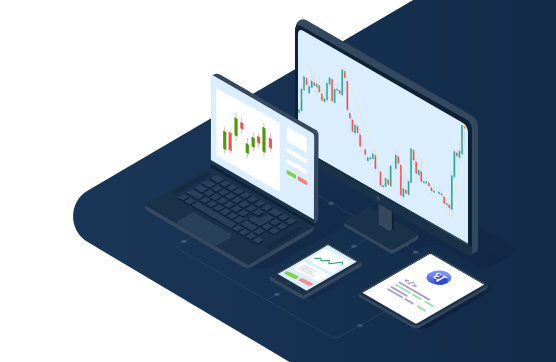Debt Mutual Fund, or in other terms also known as a fixed income fund, invests a significant portion of money in income securities. These income securities are more like government securities, debentures, corporate bonds, and other money market instruments. When you invest money in such a way, such as debt mutual funds, your risk factor is considerably lower.
Why would an investor choose a debt fund? It is a big question that arises for everyone. So here are a few of the factors for why one would actually choose a debt fund, in simpler terms, the major benefits are that a debt fund offers to its investors.
It has a stable income
An investor has the potential of a capital appreciation over a period of time, while they are funds that come with a lower degree of risk than equity trance.
Tax efficiency
A lot of people invest money for the primary reason of reducing the annual tax. So let’s say the tax is reduced. That makes it a crucial investment goal achieved. So you can consider investing in debt mutual funds because they are more tax-efficient than traditional investment options.
They are highly liquid
As for debt Mutual Funds, you have no lock-in periods. Some of the funds even carry an exit load, which is a charge deducted at the source for early withdrawal. Exit loads are tagged along with some funds, whereas some of them do not even have an exit load. So the bottom line is that in Debt Mutual Funds or liquid funds, you can withdraw your money from a refund on any business day.
They are a stable source of income
Investing in a debt fund means it can also increase the balance of your portfolio and simultaneously on a lower risk factor. Equity funds can be volatile as their returns have a link directly to the performance of the stock market. But in the case of debt funds, you can adequately diversify your portfolio and bring down the overall risk and it is a cushion to your downside.
They are known to be flexible
The funds offer you the option of moving around your money to different funds. It is possible through a systematic transfer plan where you have the option to invest a lump sum amount in debt funds and systematically transfer a small portion of the fund to equity at regular intervals. By this, you can spread out the risk of equity funds over a specified period of time rather than investing the entire amount at a whole point. And in other investments, this option of flexibility might not always be available.
How Does a Debt Fund Work?
A debt fund aims to generate returns while investors can start investing in bonds and other fixed-income securities. It means that these firms can buy the bonds and earn interest income on the money. It is similar to a fixed deposit, and it works pretty much in the same way. For example, when you deposit money in the bank you are technically lending money to buy and in return, the bank offers liquidity interest on the money that you have deposited in a locked-in period.
So, on a whole, the fixed debt mutual funds are fixed income, and low-risk securities like bonds, certificates of deposit, treasury bills, commercial paper, and similar money market instruments. When you are investing in a debt fund, remember that you are investing where a corporate or government entity has issued the debt instrument to raise funds for their projects. It is a popular investment option for a diverse range of investors, retail and institutional. And there are several types of this kind of debt fund.
It includes
- Liquid funds
- Short term, medium-term, and long term Bond
- Fixed maturity plans
Who should be investing in a Debt Fund?
You are most suited for a debt fund if you are an investor interested in moderate risk. The risk of investing in a debt fund is lower than equity. So if you have a low appetite for risk, this is the right fund for you. You can also invest in debt funds if you have a surplus fund. It’s another reason to invest in debt funds. Simultaneously, you also get to diversify your investment portfolio, and it can be a good way to reduce the overall portfolio risk in case you have a higher equity allocation in your portfolio.
Some of the Performing Debt Funds Today
– Kotak Dynamic Bond Fund
– ICICI Prudential All Seasons Bond
– HDFC Credit Risk Debt Fund
These are just some of the many funds in the stock market today. The bottom line of all of these debt funds is directed towards investors looking for a stable income. And when it is compared to equity, where there is unlimited exposure to market risk. These funds are an option worth exploring. It is a place where you get to choose among the different types of debt funds like liquid funds, short-term debt funds, fixed maturity plans, and many more based on investment goals and your Time Horizon.
Conclusion
If you have a lump sum amount of money to tie up somewhere, simultaneously earn interest over it, a debt fund is a good way to start. It is a scheme that you can invest in by interlinking yourself with fixed income instruments like bonds, money market instruments, securities, and more. Along with that, it also offers you capital appreciation with liquidity and flexibility. It is a fund that you can liquidate at any moment, on the other hand, it is also a fund that does not expose you to the risks of the market.



